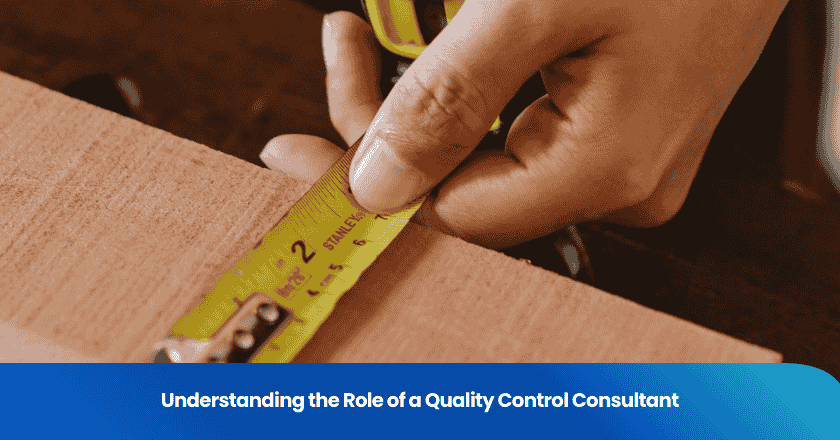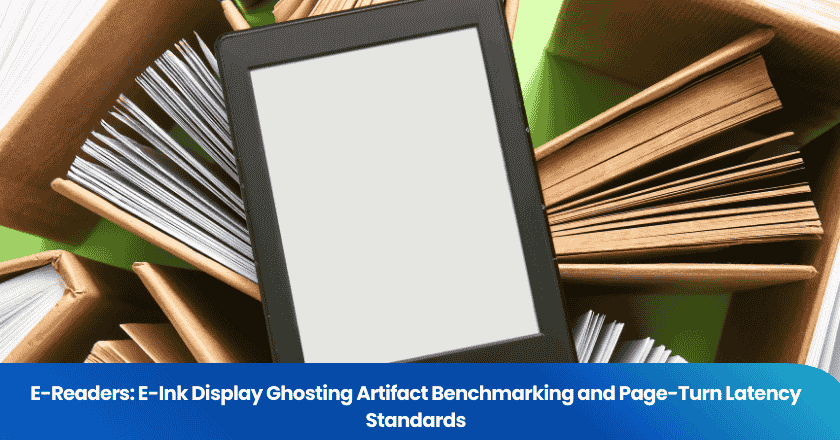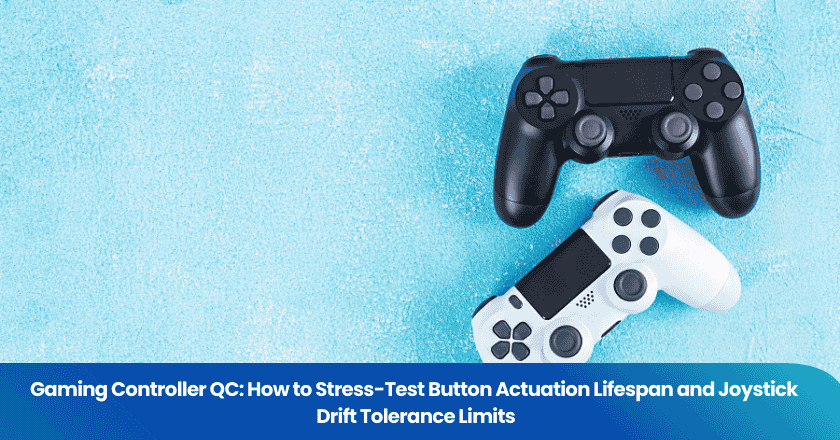
A quality control consultant evaluates and improves organizational systems to ensure products, services, and processes meet established standards and regulations. They play a pivotal role in enhancing quality, reducing operational risks, and strengthening customer satisfaction.
- Organizations in aerospace, automotive, and food industries have reduced defects and warranty claims by engaging consultants, restoring profitability and customer trust.
- Consultants modernize outdated systems, minimize service disruptions, and align quality management practices with industry benchmarks, lowering operational risks and boosting product reliability.
- By fostering a culture of continuous improvement, quality control consultants help companies maintain competitive advantage and long-term customer loyalty.
Key Takeaways
- Quality control consultants help organizations improve product quality, reduce defects, and meet industry standards.
- They assess current processes, set tailored quality standards, conduct audits, and provide staff training to boost performance.
- Consultants bring strong technical, analytical, and communication skills to ensure compliance and support continuous improvement.
- Hiring a consultant early can prevent costly mistakes, improve customer satisfaction, and strengthen operational efficiency.
- Choosing the right consultant involves checking qualifications, experience, and fit with the organization's goals and culture.
Quality Control Consultant Responsibilities
Assessing Processes
A quality control consultant begins by thoroughly assessing an organization's existing systems and workflows. This assessment uses a range of methods to identify inefficiencies, risks, and opportunities for improvement. Common approaches include:
1. Inspection of raw materials, in-process items, and finished products to detect defects early.
2. Statistical Process Control (SPC) to monitor and control variations in production.
3. Sampling techniques to efficiently evaluate product quality.
4. Automated testing to ensure consistency and reduce human error.
5. Employee training to enhance awareness of quality standards.
6. Root cause analysis to address recurring issues.
7. Preventive maintenance to minimize equipment failures.
8. Six Sigma methodologies to reduce defects and improve efficiency.
9. Quality audits to ensure compliance with standards.
10. Feedback loops to incorporate customer insights.
11. The Taguchi Method to minimize variation and defects.
For example, a quality control consultant might help a manufacturing company implement Lean Six Sigma, resulting in significant cost savings and reduced waste. In the service sector, consultants have guided organizations like healthcare providers to streamline patient intake, reducing wait times and improving satisfaction. These practical interventions demonstrate the value of a qa consultant in optimizing testing processes and supporting continuous quality improvement.
Setting Standards
A qa consultant plays a crucial role in establishing and maintaining quality assurance standards tailored to each organization. They start with a gap analysis to compare current practices with industry benchmarks such as ISO 9001 or Good Manufacturing Practice (GMP). The consultant then works with management to define what quality means for the organization, set clear objectives, and develop a customized quality management system.
Typical standards set by a qa consultant include:
- GxP standards (GMP, GCP, GLP)
- Computer system compliance (FDA 21 CFR Part 11, EU Annex 11)
- Quality management systems (ISO 13485, 21 CFR Part 820)
- Data integrity principles (ALCOA)
- Risk management protocols (CAPA processes)
- Regulatory alignment with authorities such as FDA, EMA, and WHO
Consultants ensure that these standards align with the organization's operational context, supporting both compliance and long-term quality assurance. By tailoring standards, a qa consultant helps organizations avoid costly recalls, regulatory penalties, and reputational damage.
Audits and Inspections
Audits and inspections form the backbone of quality assurance. A qa consultant plans and executes these activities to verify compliance, identify risks, and drive improvement. The process typically involves:
1. Understanding the audit's purpose and key risks.
2. Confirming relevance and urgency with leadership.
3. Reviewing previous audits and regulatory requirements.
4. Defining scope and success criteria.
5. Preparing audit programs and schedules.
6. Conducting structured audits, including document review, process observation, and interviews.
7. Reporting findings with actionable recommendations.
8. Assigning corrective actions and timelines.
9. Following up to ensure issues are resolved.
10. Engaging in continuous improvement by updating procedures and integrating new methods.
Note: Organizations that work with a qa consultant often achieve higher audit pass rates and improved compliance, especially when audits focus on high-risk areas and use robust documentation practices.
Staff Training
A qa consultant delivers targeted staff training to build internal expertise in quality assurance and testing processes. Training methods include:
1. Comprehensive programs covering basic and advanced quality control techniques.
2. Hands-on workshops using tools like control charts and Pareto analysis.
3. Certification courses to validate skills in quality management.
4. Real-world case studies for practical learning.
5. Customized sessions tailored to organizational needs.
6. Integration of quality training with leadership and risk management.
7. Emphasis on continuous improvement and compliance with international standards.
8. Advanced data analysis for informed decision-making.
9. Networking opportunities during training.
10. Ongoing support and updated resources.
Staff training by a qa consultant directly correlates with reduced error rates and improved operational metrics. For instance, organizations have seen error rates drop from 23% to less than 1% after implementing training and process standardization.
Reporting and Improvement
After completing assessments, audits, and training, a qa consultant generates detailed reports to document findings and recommend improvements. These reports typically include:
1. Executive summary of key findings.
2. Introduction outlining project goals and scope.
3. Methodology describing data collection and analysis.
4. Detailed findings and analysis.
5. Actionable recommendations.
6. Conclusion and next steps.
7. Appendices with supporting documentation.
Modern qa consultants use analytics tools and dashboards to present complex data clearly, making it easier for organizations to understand and act on recommendations.
Organizations implement improvement plans by defining clear objectives, analyzing performance gaps, engaging teams, and breaking down goals into manageable projects. They deliver targeted training, automate routine tasks, and monitor progress using key performance indicators such as production efficiency, quality metrics, and customer satisfaction. Regular reviews and flexible adjustments ensure that improvement efforts remain effective and aligned with business goals.
Tip: Continuous improvement, driven by regular reporting and follow-up, helps organizations maintain high standards of quality assurance and adapt to changing industry requirements.
QA Consultant Skills and Qualifications
Technical Expertise
A qa consultant brings deep technical expertise to every project. They understand regulatory compliance frameworks such as FDA, EMA, and Health Canada regulations. Their skills include developing and managing Quality Management Systems aligned with ISO 13485 and other standards. They conduct risk management and implement mitigation strategies. A qa consultant prepares organizations for audits and inspections, ensuring documentation meets strict requirements. Their experience extends to vendor management, training staff on regulatory requirements, and overseeing Corrective and Preventive Actions. They maintain documentation control and support regulatory submissions, including pathways like 510(k), PMA, and CE marking. In software qa consulting, consultants apply FDA guidance on software development and cybersecurity, review design history files, and facilitate compliance with standards such as IEC 62304 and ISO 14971.
- Regulatory compliance (FDA, EMA, GxP)
- Quality Management Systems (ISO 13485)
- Risk management and CAPA
- Audit readiness and documentation
- Vendor and supplier compliance
- Regulatory submissions and pathways
Analytical Skills
A qa consultant excels in analytical skills that drive quality assurance. They use data profiling, validation, and monitoring to identify quality issues. Consultants apply Six Sigma and Lean Manufacturing methodologies, analyze data with tools like Tableau and SQL, and stay current with AI and machine learning trends. Their critical thinking helps them solve complex problems and translate data into actionable insights. In software qa consulting, they design efficient data storage systems and automate data quality checks. Consultants use dashboards to track error rates and pinpoint sources of poor data, enabling targeted corrective actions.
- Data analysis and visualization
- Statistical methods for quality assurance
- Machine learning for predictive quality
- Problem-solving and critical thinking
- Continuous learning and technology adoption
Communication
Effective communication sets a qa consultant apart. They develop comprehensive communication plans, tailor messages for different stakeholders, and use visual tools to clarify complex findings. Consultants promote transparency, encourage feedback, and select appropriate channels such as email or video conferencing. Their active listening and clear messaging foster alignment and trust. During organizational change, a qa consultant’s communication builds stakeholder buy-in and supports successful transitions.
1. Stakeholder mapping and tailored messaging
2. Visual communication (charts, diagrams)
3. Open feedback and transparent updates
4. Change management support
5. Active listening and concise reporting
Certifications
| Certification Category | Examples of Recognized Certifications |
|---|---|
| ISO Quality Management Standards | ISO 9000, ISO 9001 |
| Environmental Management | ISO 14000 |
| Food Safety Management | ISO 22000, HACCP |
| Product & Safety Certifications | CE Marking, FDA, RoHS, GMP |
| Industry-Specific Certifications | BRC (Food Safety), ICTI (Toy Industry), GSV (Supply Chain Security), API (Petroleum Industry) |
| Environmental & Sustainability | FSC, GRS |
Certification requirements vary by industry. For example, healthcare relies on ISO 13485, automotive uses IATF 16949, and aerospace requires AS9100. General certifications such as Six Sigma, CQE, and CQA apply across sectors, supporting quality assurance and software qa consulting roles. These credentials validate a qa consultant’s expertise and ensure compliance with global standards.
Value to Organizations
Boosting Quality
Quality control consultants bring an external perspective that helps organizations identify gaps in their quality systems. They assess workflows, recommend improvements, and implement best practices. By applying quality assurance frameworks, consultants ensure that every process step meets strict standards. For example, they introduce standardized work instructions and continuous monitoring, which leads to consistent product quality. Consultants also use data analytics to track quality metrics and highlight areas for improvement. Their expertise in quality assurance helps organizations build a culture focused on excellence and reliability. This approach not only improves product outcomes but also strengthens the organization’s reputation for delivering high-quality results.
Reducing Defects
Consultants play a critical role in reducing defects by focusing on prevention rather than correction. They use root cause analysis tools, such as Fishbone diagrams and Pareto charts, to identify the sources of defects. Through Lean and Six Sigma methodologies, consultants guide teams to develop targeted solutions and update standard operating procedures. One company reduced its defect rate by a factor of 16 over three years, achieving a 0.1% defect rate. Quality assurance initiatives, such as control plans and statistical process control, help sustain these improvements. Consultants also foster a zero-defect mindset, empowering employees to prioritize quality in every task. This proactive approach leads to significant cost savings and supports long-term business success.
Ensuring Compliance
Quality control consultants help organizations navigate complex regulatory environments. They interpret and apply global standards, such as ISO 9001 and FDA regulations, ensuring that quality assurance processes meet all requirements. Consultants centralize regulatory intelligence and develop harmonized protocols for documentation and validation. They conduct internal and supplier audits, review documentation, and prepare organizations for regulatory inspections. By managing compliance challenges, consultants reduce the risk of penalties and protect the organization’s reputation. Their expertise ensures that quality systems remain robust and up to date, even as regulations evolve.
Customer Satisfaction
Quality control consultants directly impact customer satisfaction by ensuring consistent quality in products and services. They listen to customer feedback through surveys and social media, using this information to address pain points. Consultants leverage technology, such as data analytics and AI-driven tools, to understand customer needs and resolve issues quickly. They implement quality assurance practices like user acceptance testing and regular audits, which prevent defects from reaching customers. By maintaining high standards and responding to feedback, consultants help organizations achieve higher customer satisfaction scores and foster loyalty.
A strong focus on quality assurance not only reduces defects but also builds trust with customers, leading to repeat business and positive word-of-mouth.
When to Hire a Quality Assurance Consultant
Common Scenarios
Organizations often face situations where bringing in a quality assurance consultant becomes essential. Several scenarios signal the need for expert support:
- Frequent bugs appear in production, showing gaps in testing.
- Product releases experience delays due to slow or inefficient testing.
- Costs rise as teams fix bugs late in the development cycle.
- Internal teams lack the necessary expertise, skills, or tools for effective quality management.
- Customers express dissatisfaction, leading to increased churn.
- Scaling quality processes proves difficult as projects grow in complexity.
- Testing coverage remains inconsistent or unstructured.
- Automated testing strategies are challenging to implement.
- Leadership seeks an independent review to uncover improvement opportunities.
- Compliance, security, or performance risks require mitigation.
- Internal teams need training and mentoring to strengthen quality capabilities.
- An unbiased external perspective is needed to identify overlooked issues.
Tip: Early engagement with a consultant can prevent costly mistakes and help organizations maintain high standards.
Engagement Process
The engagement process with a consultant follows a structured approach. First, the organization defines its goals and identifies key challenges related to quality. Next, the consultant conducts an initial assessment, reviewing current processes and gathering data. Together, they set clear objectives and outline a project plan. The consultant then implements solutions, such as process improvements, staff training, or new testing tools. Regular check-ins ensure progress stays on track. After implementation, the consultant provides post-project support, helping teams sustain improvements and adapt to future needs.
A typical engagement might include:
1. Initial consultation and needs assessment
2. On-site or remote evaluation of quality systems
3. Development of a tailored improvement plan
4. Implementation of recommended changes
5. Ongoing monitoring and support
Choosing the Right Consultant
Selecting the right consultant requires careful evaluation. Organizations should:
1. Verify qualifications, such as ISO 9001 lead auditor or ASQ certifications, and look for real-world experience.
2. Ensure the consultant customizes their approach to fit the organization’s objectives and culture.
3. Assess compatibility with leadership style and communication preferences.
4. Evaluate project management skills, including clear timelines and post-implementation support.
5. Compare cost structures, focusing on value and return on investment.
6. Check references and review past work to confirm a strong track record.
7. Confirm that the consulting firm has direct experience with compliant quality systems.
A quality assurance consultant brings an objective perspective, up-to-date knowledge of industry trends, and a focus on measurable results. The right choice can help organizations improve customer satisfaction, optimize technology adoption, and strengthen employee engagement.
Quality control consultants deliver measurable long-term benefits for organizations.
1. They improve product quality and efficiency, reduce costs, and boost customer satisfaction.
2. Organizations track ROI by setting clear objectives, monitoring KPIs, and evaluating cost savings and customer growth.
| Metric | Description & Use Case | ROI Support |
|---|---|---|
| Daily Sales Revenue | Measures sales impact post-consultant intervention | Compares revenue gains to consultant fees |
| Operating Margin | Assesses efficiency and profitability improvements | Quantifies cost savings and margin improvements |
| Customer Acquisition | Tracks new customer growth and market expansion | Evaluates impact on long-term profitability |
Before engaging a consultant, organizations should analyze current consulting spend, identify repeatable needs, and forecast future demand. This approach ensures the right support for continuous quality improvement.
FAQ
What industries benefit most from quality control consultants?
Manufacturing, healthcare, food production, and technology companies often see significant improvements from quality control consultants. These industries require strict compliance, consistent product quality, and robust risk management practices.
How long does a typical quality control consulting project take?
Project duration varies based on scope and complexity. Most engagements last from several weeks to a few months. Consultants tailor timelines to meet organizational needs and ensure effective implementation.
What qualifications should organizations look for in a quality control consultant?
Organizations should verify certifications such as ISO 9001, Six Sigma, or ASQ credentials. Relevant industry experience, technical expertise, and strong communication skills also indicate a qualified consultant.
Can a quality control consultant help with regulatory audits?
Quality control consultants prepare organizations for regulatory audits by reviewing documentation, conducting mock inspections, and recommending corrective actions. Their expertise increases audit success rates and reduces compliance risks.
How do consultants measure the success of quality improvement initiatives?
Consultants track key performance indicators, including defect rates, customer satisfaction scores, and operational efficiency. They use data analytics and regular reporting to demonstrate measurable improvements and return on investment.
Grow your business with TradeAider Service
Click the button below to directly enter the TradeAider Service System. The simple steps from booking and payment to receiving reports are easy to operate.





